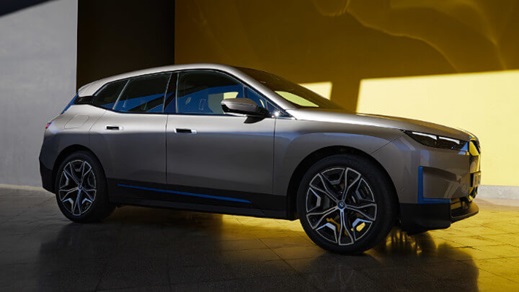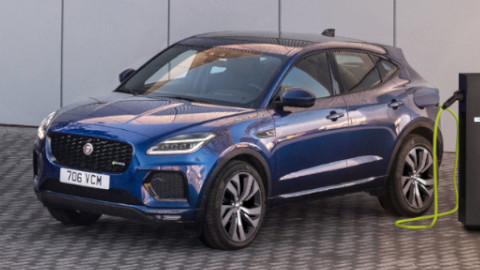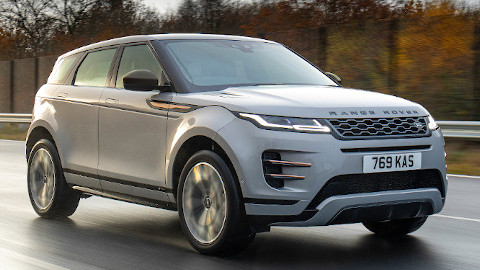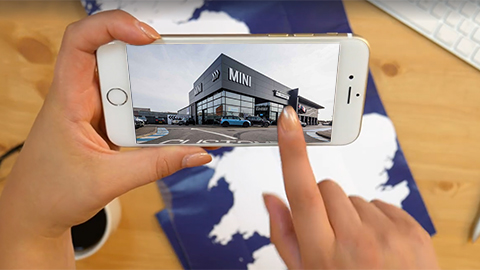Charging your hybrid or electric car
If you are considering the switch to a car with an electrified powertrain, you may be wondering what charging solutions are available.
Whilst mild hybrid and full hybrid cars have the capability to charge themselves, you will need to plug your vehicle into a source of power if you opt for a plug-in hybrid or all-electric model to maximise your efficiency.
With thousands of public charging stations located nationwide, as well as affordable home charging solutions, day-to-day life with an electrified car is as convenient as ever.

Different types of charging points

Slow
Usually taking between 6 and 12 hours for a full charge, slow charging points offer speeds of up to 7kW and are typically used within homes or locations where vehicles are often parked overnight.

Fast
Usually taking between 2 and 4 hours for a full charge, fast charging points offer speeds between 7kW and 22kW and are typically found at locations where vehicles are parked for a few hours.

Rapid
Usually taking between 20 and 60 minutes for an 80 percent charge, rapid charging points offer speeds between 43kW and 50kW and are typically found where vehicles are parked for a short break.

Ultra Rapid
Offering up to 200 miles in as little as 30 minutes, ultra rapid charging points provide speeds of 50kW and above. Ultra rapid charging is only available on certain makes and models.
Find your nearest charging point
Recently there has been a significant increase in the number of charging stations located around the UK, with over 30,000 chargers, charging your vehicle whilst out and about has never been so simple.
Many public EV charge points are free to use, however, the majority of fast and rapid chargers do require payment. There are websites and apps that can assist you with locating an electric car charging station.
Alternatively, EV charge points can be installed at your home but often require you to have off-street parking. Charging your vehicle at home is the most convenient and cost-effective method, and Government grants may be available to support with the installation of home EV charge points.
The time it takes to fully-charge an electric vehicle varies depending on the vehicle's battery size and the speed of the charging point.
What Affects Range?
There are a variety of factors that can affect how often you will have to charge your car.

Weather Conditions
Due to the additional energy required to get the car up to operating temperatures, cold weather can often have a detrimental effect on electric range.

Energy Use
The more energy used powering systems such as air conditioning, the lower your range.

Payload and Speed
Carrying heavier weights and travelling at higher speeds will reduce the distance you can travel.

Battery Degradation
Over a period of years, your battery will deteriorate, and its overall capacity will be reduced. Servicing and correct maintenance can reduce its effects.
Frequently Asked Questions
Finding your nearest electric car charging station is simple. Simply use the map seen above to locate your nearest charging point.
Depending on your car, it may also have technology to assist in finding a charging point and integrate charging locations into your route if and where required.
Charging your car can differ slightly depending on the make and model, but it is a straightforward process.
Simply connect your car to the charging point using the correct cable and connector, activate the charging point, and relax. For further advice, we have written this useful blog using an electric Jaguar as an example.
The cost of charging an electric car can differ depending on the size of the battery and charge speed. Prices can also fluctuate due to the cost of energy at that time.
Charging your vehicle at home is the cheapest way of doing so, especially when completed during off-peak hours (such as overnight), where energy providers often offer preferential rates. Prices can increase in hotspots such as motorway service stations, but the majority of charging networks will still be significantly less than filling up an internal combustion engine powered car at a petrol station.
Paying to charge your electric car is a simple process. Each charging point will come with its own instructions on how to do so, and many come with contactless payment points, so you can use your credit or debit card. Various providers also offer mobile applications that allow you to pay online.
If you are charging from home, the electricity used will be taken into account in your electricity bill.





